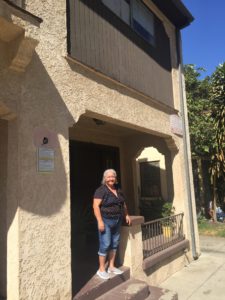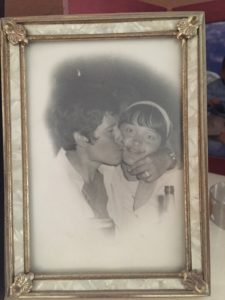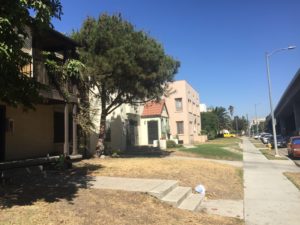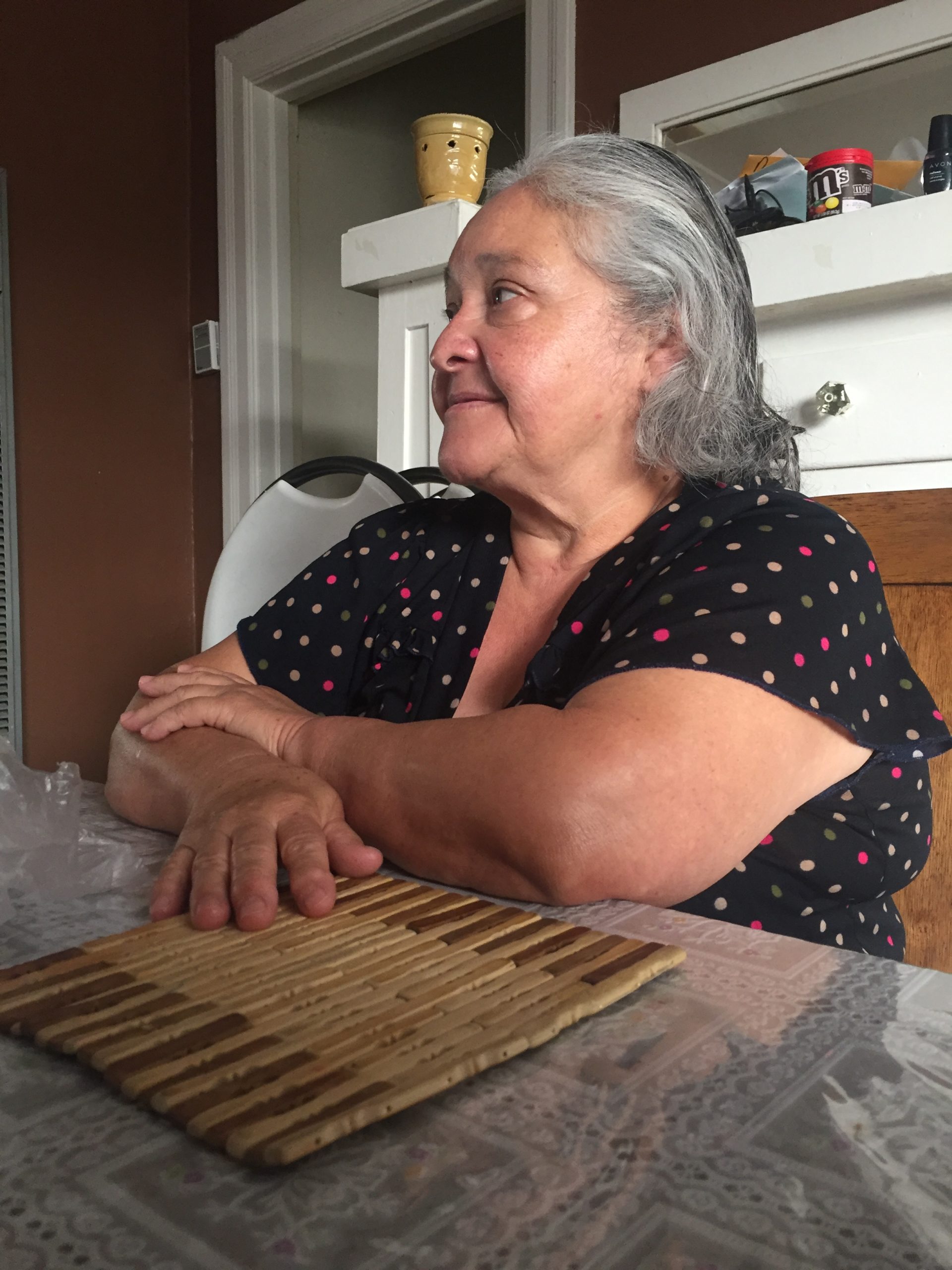Before I left the South Central residence of Herlinda Anguiano, 66, she stopped me and made me promise I would thank my mother every day. I immediately felt sick. I don’t thank my mom every day, and I don’t show her I want her life to get easier as she gets older. Herlinda’s life just got harder and more uncertain – plus she is not thanked every day.
Recently, Herlinda’s building (along with seven others on her block) was bought by Spectrum Group Real Estate. It purchased the buildings to demolish them. In place of their homes, Spectrum Group plans to build a hotel, student housing, and mixed-income housing.

Herlinda Anguiano, in front of her home off of Figueroa. Developers plan to bulldoze her home of 40 years.
Herlinda has lived in her home for the last 40 years, the majority of her life. Her and her neighbors now face eviction and will be forced to watch their neighborhood be bulldozed.
“I can walk this neighborhood with my eyes closed, and if I move to another place that won’t be true. I’m too old and when you’re old it’s hard to adjust. I want to die here. I’m not happy to move out,” Anguiano said.
The Rent Stabilization Ordinance (RSO) provided the opportunity for Herlinda and her neighbors to build a stable life in this neighborhood. Some residents have lived there for decades without seeing their rent rise above $600.
The RSO also makes sure they receive compensation for the forced eviction.
“They will give us that money because it’s the law, not because they have a good heart. We can spend that in a year, then what? Especially with the rent so high, that’s not enough money. You can’t find cheap apartments anywhere, definitely not here in LA,” Anguiano said.
The residents won’t just be forced to leave their homes, which would be rough for anyone, a lot of stressors will be added to their lives.
For Herlinda, this means being further from her daughter who works at USC and her grandson who has autism. It means leaving the community where her best friends live, leaving where she worked for the majority of her life, and leaving a community where so many of her memories were made.

Herlinda and her late husband moved to South Central Los Angeles in 1976 where they began to build their family.
For one of Herlinda’s neighbors Carmen Barajas, 61, it means having to live far from the hospital her daughter has been in for 15 years while coping with a brain tumor. Carmen visits her daughter every single day at 5pm. It also means a delayed retirement for her husband Teoromero who will have to continue to work to afford their new rent.
For other residents it means leaving the home where three generations have lived, grown up, and are raising the next.
Some of the stressors are sentimental and metaphysical, but most of them will be a direct result of added financial hardship. Affordable housing gives human beings the opportunity to live better now and build a better future for the next generation.
“It’s amazing. We’ve been blessed in so many ways. Because of low income rent we don’t pay a lot of money. We were able to raise our kids in a way that kept them down a good path. They’re not doctors or lawyers but they are working and make a living like everybody else,” Herlinda said.

Herlinda has been a mother in this tight-knit South Central community. Her and other residents now face a forced eviction to make way for a new development.
Affordable housing gives mothers like Herlinda the opportunity to raise the next generation without the added burden of rent increases which lead many families to frequently move to avoid yearly hikes.
As Herlinda reminisces on her past she becomes fidgety, her hands begin to shake and her voice sounds helpless with a hint of anger.
“I’ve been so blessed. I used to work two blocks from here. I could reach the buildings in downtown it’s so close. The rent is so low. We need to think more about the kids and the old people. We aren’t getting what we really need after 40 years of our life working for this country.”
This is not how we thank our mothers. This is not how we show our appreciation for the investment they’ve made into our lives and communities. We should be helping our mothers ease into their later years, not destroy the life they know.

